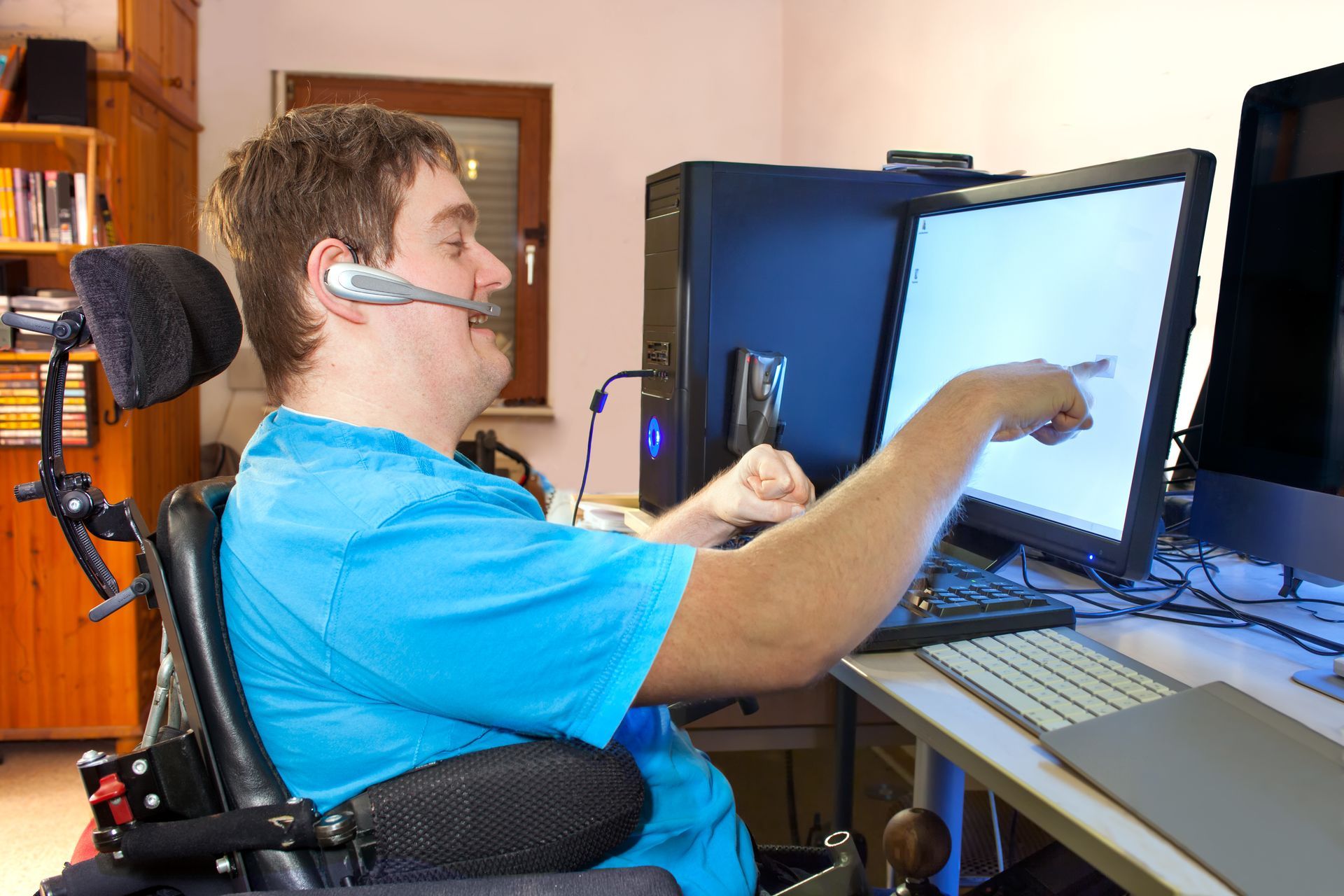Living with Cerebral Palsy
Effective Communication
with people with CP
Living with cerebral palsy
Having cerebral palsy does not stop a person from leading a full and satisfying life. However, people with CP face many barriers and obstacles that have little to do with their abilities. These barriers are caused by outside forces such as inaccessible buildings and transportation, societal attitudes, and exclusion from education and employment opportunities. We all have a role to play in breaking down these barriers and ensuring that the rights of all people are honoured. Furthermore, one of the most powerful things that we can do is simply be aware of our own biases and prejudices when we are interacting with others.
When You Meet Someone With CP
Language and attitudes are very important. If you do not have experience interacting with people with CP, there are some key things to keep in mind. These tips will help you to remove barriers so that you and the individual you are communicating with can enjoy a rich and engaging interaction:
- When interacting with someone who uses an alternate form of communication, take a moment to determine how the individual communicates (symbol board, voice synthesizer etc.)
- A person with CP would rather repeat themselves than to have someone pretend that they understand. If you are not sure what someone said- ask!
- Try not to assume that because someone talks differently they also hear differently. Try and speak the same way you would to anyone else
- For many people with CP the muscles around the mouth and throat can be challenging to control. Do not mistake slow, slurred or halting speech as an indication of someones' intelligence. It can be very frustrating for someone with CP to be 'talked down to' by their peers
- Try not to interrupt or cut off someone who speaks more slowly than you. Just because someone with CP may take longer to get an idea out does not mean that their ideas are less important than yours
Inclusion and Participation
People with CP are people first and it can be extremely frustrating to be treated differently. Never describe someone with CP as "wheelchair bound", "spastic", "afflicted", "suffering", or "handicapped". These terms are very hurtful and negative. People with CP do not want pity or charity but rather the right to full inclusion and participation. At times access to full inclusion and participation requires the use of assistive devices, personal attendants, adapted vehicles, specialized programming and so on. People with CP and their families will often have significant personal financial costs associated with gaining equal access to all areas of life. The OFCP is committed to enabling people with CP to have the same opportunities as the rest of society. Our work includes funding for Assistive Devices, Day Programs, and Vacations as well as Person-Centered Planning Services.



